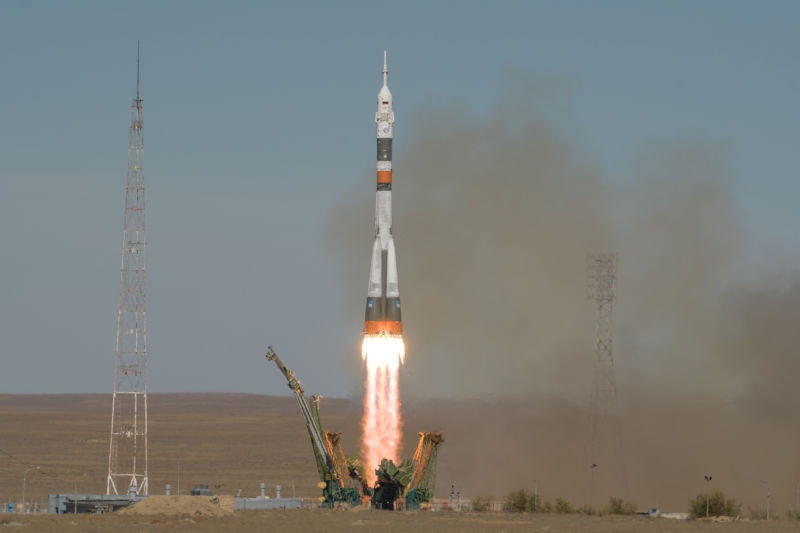
Although the official report on the cause of a Soyuz rocket failure won't be released until Thursday, a Russian official disclosed its central conclusion a day early, the country's news agency TASS reports.
Sergei Krikalev, the executive director of "manned programs" for Russia's space corporation, Roscosmos, said a sensor on board the rocket failed to properly signal the separation of the first and second stages. As a result, one of the side-mounted rocket boosters did not separate properly from the vehicle and collided with the rocket.
This collision triggered an automatic abort of one of the Soyuz's abort systems, pulling the crew of NASA astronaut Nick Hague and Russian cosmonaut Aleksey Ovchinin safely away from the rocket, and sending them on a ballistic return to Earth.
The Russians have conducted a rapid investigation of the failure, which occurred on October 11, concluding it within three weeks. They have been driven to do this because, at present, the Soyuz spacecraft is the only means by which NASA, Russia, and their international partners have of getting people to and from the station. Three people remain in orbit: American astronaut Serena Auñón-Chancellor, German ISS Commander Alexander Gerst, and Russian Sergey Prokopyev. They are due to return to Earth around Dec. 20.
After their investigation, Russian officials are actually planning to move up the next crewed launch from mid-December to early December to ensure a continued human presence on the station. The space station can operate autonomously for a period of time, but if something critical breaks, and no astronauts were on board to fix the problem, the station could become severely damaged or even lost.
Krikalev said the next launch will now be moved forward to Dec. 3, and will carry the same crew as originally intended on this mission, MS-11: Russian Oleg Kononenko, American Anne McClain, and Canadian David Saint-Jacques. The problems with the Soyuz rocket, he said, will be fixed.
NASA officials have consistently said they have full confidence in the Russian investigation, as well as the Soyuz rocket and spacecraft. It is inconceivable that the more cautious US space agency would suffer a total rocket failure in October, and fly humans on that same rocket less than two months later. However, given their reliance on Russia, US spaceflight officials have little choice but to defer to the Russians until commercial crew vehicles under development by SpaceX and Boeing come into service, probably within about a year from now.
https://arstechnica.com/science/2018/10/russian-official-says-soyuz-rocket-failure-caused-by-an-errant-sensor/Bagikan Berita Ini














0 Response to "Russian official says Soyuz rocket failure caused by an errant sensor"
Post a Comment